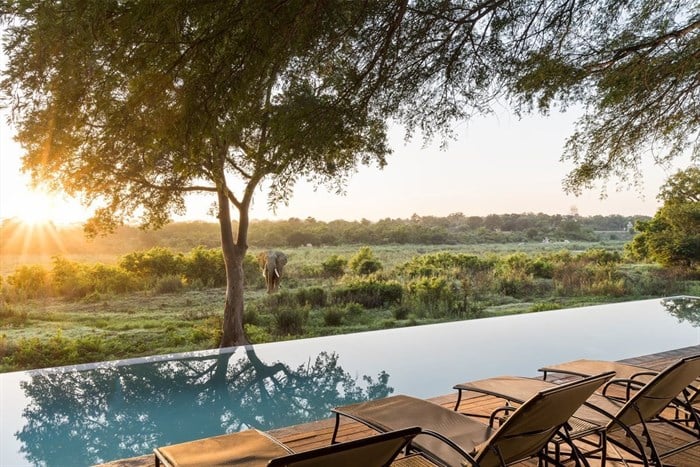
Happily, with the success of the vaccine rollouts in most countries, we have now begun to see a return to some sort of ‘normal’. It’s a ‘normal’ that isn’t quite what things were before Covid hit us in late 2019, but it is encouraging currently to see greater visitor numbers than we saw for at least two years.
Let’s take a look at what we are currently experiencing in the tourism industry, and discuss the trends we anticipate for the new year.
There has been a perceptible shift from mass consumer tourism and a significant portion of holiday spend on ‘things’ towards meaningful, responsible travel with lockdown disposable income being used for life-changing experiences.
For many, this means opting for a big trip that involves something particularly special - something likely to be a once-in-a-lifetime experience. We are seeing this phenomenon at Kruger Gate Hotel, with some of our guests explaining that a safari experience in South Africa had always been a dream but that can now become a reality in the aftermath of over two years of no travel because of Covid.
This is not exclusive to South Africa. Across the world the cost of living has increased tremendously as a result of inflation, rising interest rates, fears of a recession, and supply chain interruptions as a result of the Ukraine–Russia war.
The result for consumers is, of course, that travel is more expensive - if not unaffordable - while service providers, most notably the airline industry, have been forced to increase their costs.
We’ve already seen in 2022 the reduction in the average age of guests to traditionally long-haul destinations such as South Africa. Kruger Gate specifically has seen a shift from an older clientele to a much younger cohort of travellers. Additionally, the travel industry in general is seeing many more multi-generational groups such as families travelling and celebrating being together as they try to spend more quality time with older members of the family.
This means that accommodation must be flexible, providing for young families, older less abled grandparents, and everyone in between. The activities on offer in and around the hotel must reflect the diversity of ability and interests, too.
KwaZulu-Natal has long been a favourite for local and international travellers alike. The adverse weather conditions that lead to widespread floods in 2022 caused extreme damage to the international airport and holiday homes, while prolonging beach closures into the current holiday season
The result of this was two-fold. While, on the one hand, the region has seen lower visitor numbers, many people who would have travelled there are now looking for alternate destinations. Taking advantage of the wonderful summer weather, many are choosing the great outdoors for a safari experience instead - and the Kruger National Park area has proved particularly popular.
To add to a year that was already shaping up to be chaotic, several local airlines were either liquidated or grounded in the past year: SA Express, Comair and Mango. The closure of Comair alone (owner of Kulula and a British Airways franchisee) means that South Africa lost 40% of its flight capacity. The remaining airlines – FlySafair, LIFT, CemAir, Airlink and SAA – do not have the capacity to meet demand. Lots of routes have been left unserviced although we are beginning to see this change now.
Against the backdrop of seeming chaos in the airline industry locally, importantly, there were also a number of other factors that gave hope to the industry and set the trends for the coming year.
Calming the airline chaos a bit has been the addition of new flight routes to various parts of the country. Delta Airlines, Air Belgium, Qantas, United, Eurowings and more have launched direct flights to and from South Africa.
The quest for holidays with purpose is being reflected in the choice of accommodation, away from homogenous hotels to properties with a more local identity, mirroring the chosen destination of the guests. The newly independent Kruger Gate Hotel is establishing an even more unique selling proposition for the guests of today, which includes a new boma experience, and game viewing from the vantage point of the property itself, which enjoys a unique position in relation to the Kruger National Park.
Guests are looking for authenticity in their holiday experiences, including evidence of sustainable tourism, and ecologically sound practices by hospitality practitioners. Examples of this include the reduction of waste and the inclusion of local communities and local products through the supply chain. Visitors are no longer observing from a distance but are looking for immersion in the local culture and for first-hand encounters with people and wildlife.
The hospitality sector is also seeing much shorter lead in times for bookings, with a greater degree of spontaneity by travellers. Prevailing geo-political circumstances, exchange rates, ease of obtaining visas – all these factors can determine the selection of a holiday destination and, as they change, so do the holiday choices of guests. Although direct online bookings are still part of the overall reservation landscape, even the more tech savvy are reverting to the expertise of travel consultants to source countries, resorts or cities and properties that meet all their holiday criteria.
Longer stays are also evident as digital nomads extend vacations into ‘bleisure’ travel and combine working remotely with a holiday. Set seasonal travel patterns have also shifted as traditional busy periods are being avoided, resulting in fewer peaks and troughs in occupancy levels.
It’s clear that 2022 was not the year that we expected it to be but, judging by the trends we are seeing, we are hopeful that 2023 will be better.